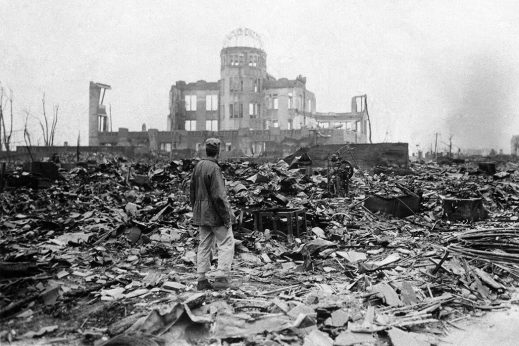
Nagasaki marked the 76th anniversary of the U.S. atomic bombing of the Japanese city today with its mayor urging Japan, the United States, and Russia to do more to eliminate nuclear weapons.
In his speech at the Nagasaki Peace Park, Mayor Tomihisa Taue urged Japan’s government to take the lead in creating a nuclear-free zone in northeast Asia rather than staying under the U.S. nuclear umbrella—a reference to the U.S. promise to use its own nuclear weapons to defend allies without them.

Taue also singled out the U.S. and Russia—which have the biggest arsenals by far—to do more for nuclear disarmament, as he raised concern that nuclear states have backtracked from disarmament efforts and are upgrading and miniaturizing nuclear weapons.
“Please look into building a nuclear-weapons-free zone in northeast Asia that would create a ‘non-nuclear umbrella’ instead of a ‘nuclear umbrella’ and be a step in the direction of a world free of nuclear weapons,” Taue said.
At 11:02 am, the moment the B-29 bomber dropped a plutonium bomb, Nagasaki survivors and other participants in the ceremony stood in a minute of silence to mark more than 70,000 lives lost.
The Aug. 9, 1945 bombing came three days after the U.S. dropped the world’s first atomic bomb on Hiroshima, killing 140,000. Japan surrendered on Aug. 15, ending World War II.
The Treaty on the Prohibition of Nuclear Weapons was ratified at the UN earlier this year. The treaty means it is now illegal under international law to develop, test, produce, manufacture, acquire, possess, stockpile, transfer, use, or threaten to use nuclear weapons.
Morning Star









